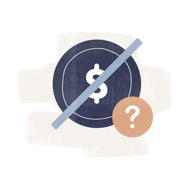When you’re counting on a loan to get your business off the ground or into the next stages of development, loan denial can be devastating. Starting and running a business is stressful enough, and for many, this setback may seem like the end of the road. While a loan denial is not a desirable course of progress, it’s not the end of business as you know it.
With a little leg work and some diligent research, you’ll be able to get your plans back on track. So what exactly do you do after you’ve been denied a loan?
1. Determine Why Your Loan Was Denied
Regardless of how you heard the news, finding out your loan was denied is guaranteed to leave you asking a lot of questions about the future of your business. It may be tempting to ask “how am I going to get through this?” But before you do, it’s more important for you to ask why your loan was denied.
Determining the exact reason why your loan was denied will help you figure out your next course of action. Loan denials can occur for a variety of reasons. Loan decisions can be based on a couple of reasons:
- poor personal credit history
poor or non-existent business credit history
not enough time in business
the risk associated with a specific industry
lack of collateral
poor cash flow for the business in question
simply a failure to properly complete an application.
Once you’ve armed yourself with the knowledge of why your loan was denied, it’s time to dust yourself off, get back up, and determine how you can obtain the financing you need to get your dreams off the ground.
2. Review Your Credit Report
If you find your loan was denied for credit reasons, you’ll need to take a detailed look at your credit report to pinpoint exactly what part of your credit needs attention. Sign up or log into your Nav account to view your credit score and credit report summary. You can download your most recent report directly or have Nav analyze your report for you. Be sure to take a look at your personal and business credit report to deduce where you may need improvement.
Once you have your report in hand, you’ll want to look for any red flags such as delinquent payments or defaults. Though it may not seem like a big deal that you missed a payment or two over the last few years, small mishaps like this can have a fairly significant impact on your credit. If a delinquent payment is the salt to your loan denial wound, the sooner you take care of the payment the better.
Another thing you will want to consider is your debt to income or revenue ratio. If your credit history shows a high percentage of debt, lenders may see it as a risk and deny your loan. If this is the case, review your current debts and create a game plan for repayment. Once you pay down these debts, you may be in a good position to access the loan you need.
3. Consider Lending Alternatives
With a little research and some patience, you will find that there are a wide variety of options available to small businesses unable to obtain a traditional business loan from the big name banks. Loans for bad credit do exist, and though they may require some additional legwork, they can provide promise for future development. Here are just a few of options for securing loans for bad credit:
Microlenders:
Quite simply, microlenders are non-profit organizations that can help small businesses secure much needed loans, even with bad credit.
There are many microlenders available to small business owners, and each has their own set of rules and requirements. For example, the well-known Accion is perfect for small businesses that need assistance with startup costs, and since the required credit score is a 575 or higher, they are often a good choice when it comes to loans for bad credit.
Other microlenders, like KivaZip, work within a conglomeration of investors, lenders, and sponsors to extend loans that are more community-based. Additionally, they typically consider things like the credibility and trust a business has or the perceived social impact a new business may have.
What’s the catch? These lenders typically only provide loan assistance in small increments, typically no more than $35,000.
Merchant Cash Advance
Another option for business owners who were recently denied a traditional loan can be a merchant cash advances. This type of lending scenario will result in a lump-sum payment to the business in exchange for a percentage of future debit or credit card transactions over a period of time.
As with any loan, there are positive and negative associations with merchant cash advances. On a positive note, you are not required to pay a set amount each week — instead, your payment will fluctuate depending on the amount of revenue coming in each week. On the down side, the interest rates for this type of lending will be higher than your typical bank loan.
Business Credit Card
Though it’s not necessarily a “loan” in the traditional sense, a business credit card can help you obtain the financing you need without the heft process of loan approval. The required credit score will vary based on the company extending the credit card, so when it comes to loans for bad credit, you may be able to find a business credit card that will work with your current credit situation.
If you are not in a credit position to qualify for a business credit card, you can look into getting a secured credit card. A secured business credit card is one that requires a deposit or collateral up front. In most cases, this deposit must be made in cash, although there are some lenders that will accept collateral in the form of homes or cars. A secured credit card or secured business credit card can be a valuable tool to build and repair your credit.
Crowdfunding
The internet is an amazing place sometimes, and proof of that can be found in a trending funding platform called crowdfunding. Here, businesses or aspiring entrepreneurs can present their business plan or objectives in the form of a “campaign” with the hopes that the general public will back their campaign.
This type of funding is free from a lot of the red tape of traditional loans and other alternative lending, but it can also be a big gamble. Some businesses may find that they accumulate an incredible amount of support from the public, while others may find that they come up short and still need to consider lending alternatives.
Bottom Line
At the end of the day, it’s important to remain positive and realize that the old adage “where there is a will, there’s a way” is often true in the world of business. By identifying the reason for your denial, reviewing your credit history, and actively researching your alternative lending solutions, you’ll be well on your way to getting your business plans back on track.
This article was originally written on November 20, 2015 and updated on October 25, 2019.


Have at it! We'd love to hear from you and encourage a lively discussion among our users. Please help us keep our site clean and protect yourself. Refrain from posting overtly promotional content, and avoid disclosing personal information such as bank account or phone numbers.
Reviews Disclosure: The responses below are not provided or commissioned by the credit card, financing and service companies that appear on this site. Responses have not been reviewed, approved or otherwise endorsed by the credit card, financing and service companies and it is not their responsibility to ensure all posts and/or questions are answered.